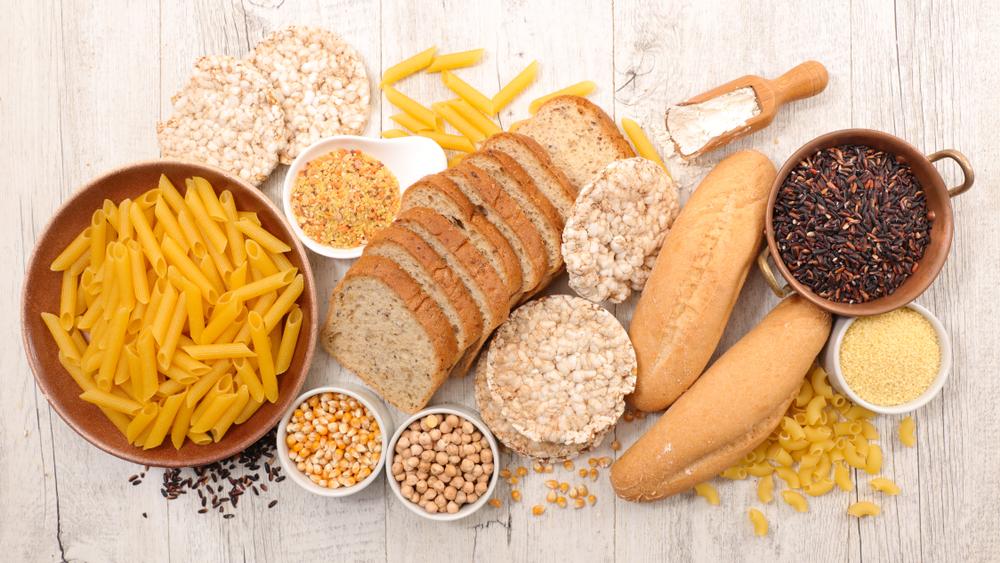In the vibrant world of fitness, where trends rise and fall like waves, the gluten-free diet has emerged as a prominent contender, often hailed as a panacea for health and vitality. Yet, as this dietary wave sweeps across gyms and yoga studios, a pertinent question arises: are gluten-free diets truly necessary for fitness enthusiasts who don’t experience gluten sensitivities? This article delves into the heart of this culinary conundrum, exploring whether the elimination of gluten offers tangible benefits for the active individual or if it’s merely another ephemeral trend. Join us as we unravel the myths, examine the science, and consider the practical implications of going gluten-free in the quest for peak physical performance.
Exploring the Gluten-Free Trend in the Fitness World
In recent years, the gluten-free diet has surged in popularity, especially among fitness enthusiasts who are always on the lookout for the latest health trends. But the question remains: Is it necessary for those without gluten sensitivities? While a gluten-free diet is crucial for individuals with celiac disease or gluten intolerance, for others, the benefits may not be as clear-cut. Proponents argue that going gluten-free can lead to improved energy levels and better digestion, but scientific evidence supporting these claims for non-sensitive individuals is limited.
For fitness enthusiasts considering this dietary shift, it’s important to weigh the pros and cons. Here are some aspects to consider:
- Potential Benefits: Some report feeling less bloated and more energetic, though these effects can vary widely.
- Nutritional Balance: Gluten-free products can be lower in essential nutrients unless carefully planned.
- Food Variety: A gluten-free diet might limit food options, which can impact meal planning and diversity.
Ultimately, the choice to adopt a gluten-free lifestyle should be informed by personal health goals and dietary needs rather than trends alone.

Understanding Gluten: Myths vs. Facts for Athletes
When it comes to gluten, athletes often find themselves navigating a maze of misconceptions. Let’s unravel some common myths and reveal the facts to help fitness enthusiasts make informed dietary choices.
- Myth: Gluten-free diets enhance athletic performance.
- Fact: For those without celiac disease or gluten sensitivity, there is no scientific evidence to suggest that avoiding gluten improves athletic performance. In fact, whole grains containing gluten can be an essential part of a balanced diet, providing necessary carbohydrates and nutrients.
- Myth: Gluten-free means healthier.
- Fact: Gluten-free products often contain higher levels of sugar and fat to compensate for texture and flavor, which might not align with fitness goals. It’s crucial for athletes to focus on overall nutrient quality rather than simply eliminating gluten.
Understanding these nuances helps athletes focus on a diet that supports their training and recovery needs rather than chasing unfounded dietary trends.

Nutritional Impact of Gluten-Free Diets on Performance
For those without gluten sensitivities, the nutritional impact of a gluten-free diet can be a double-edged sword. On one hand, eliminating gluten often leads to a focus on whole foods, which can be beneficial. Whole grains, fruits, vegetables, and lean proteins become staples, potentially increasing the intake of essential nutrients like fiber, vitamins, and minerals. However, it’s important to be mindful of the nutritional gaps that may arise. Many gluten-free products are highly processed and can lack essential nutrients found in their gluten-containing counterparts. This might lead to deficiencies in iron, B vitamins, and fiber if not properly managed.
Adopting a gluten-free lifestyle without medical necessity can also lead to unintended consequences. Consider the following potential impacts:
- Cost: Gluten-free products are often more expensive, which might not be sustainable for everyone.
- Social implications: Dining out and social gatherings can become more challenging, potentially leading to isolation or stress.
- Performance impact: Without careful planning, energy levels may drop due to insufficient carbohydrate intake, affecting workout performance.
Ultimately, while a gluten-free diet can align with healthy eating principles, it’s crucial to maintain a balanced approach to ensure that fitness goals and nutritional needs are met effectively.

Tailoring Your Diet: Balancing Fitness Goals with Gluten Intake
Finding the right balance in your diet while striving for fitness goals can be a nuanced journey, especially when considering gluten intake. For fitness enthusiasts without gluten sensitivities, embracing a gluten-free diet might not be necessary. Instead, focus on incorporating a variety of grains that offer the essential nutrients needed for energy and recovery. Whole grains like barley, bulgur, and oats provide complex carbohydrates that fuel workouts and aid in muscle repair.
- Experiment with diverse grains: Integrate grains such as quinoa, farro, and spelt into your meals to enrich your diet with proteins and fibers.
- Mindful meal planning: Balance your plate with proteins, healthy fats, and whole grains to ensure you’re meeting nutritional needs without unnecessary restrictions.
- Listen to your body: Monitor how different foods affect your performance and recovery, adjusting your diet accordingly.
Ultimately, while gluten-free diets can be beneficial for those with specific health needs, fitness enthusiasts without sensitivities might find that including gluten-rich grains can enhance their dietary variety and support their physical ambitions. Tailor your diet to what works best for you, and let your fitness journey be guided by both nutrition and personal experience.
